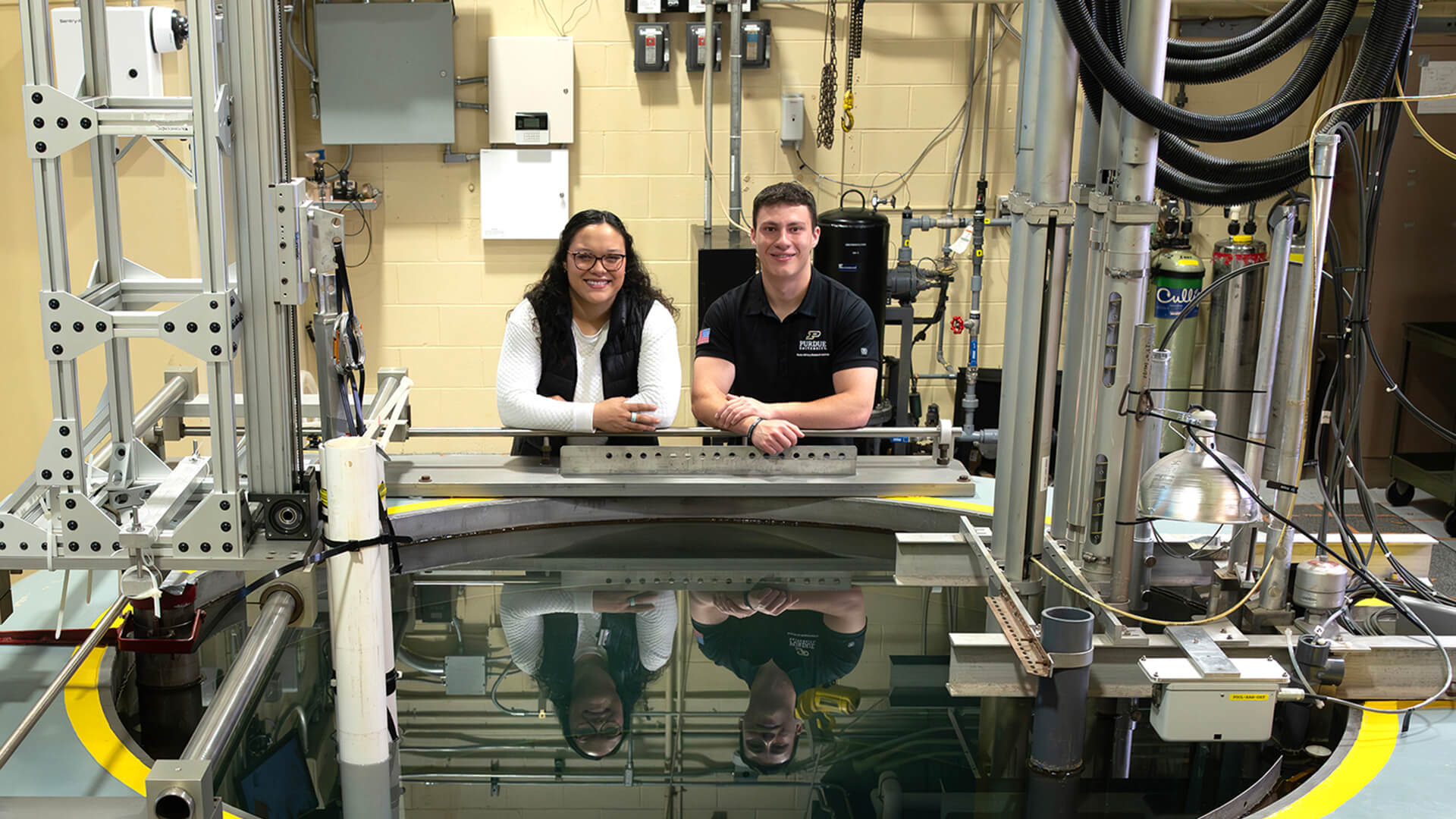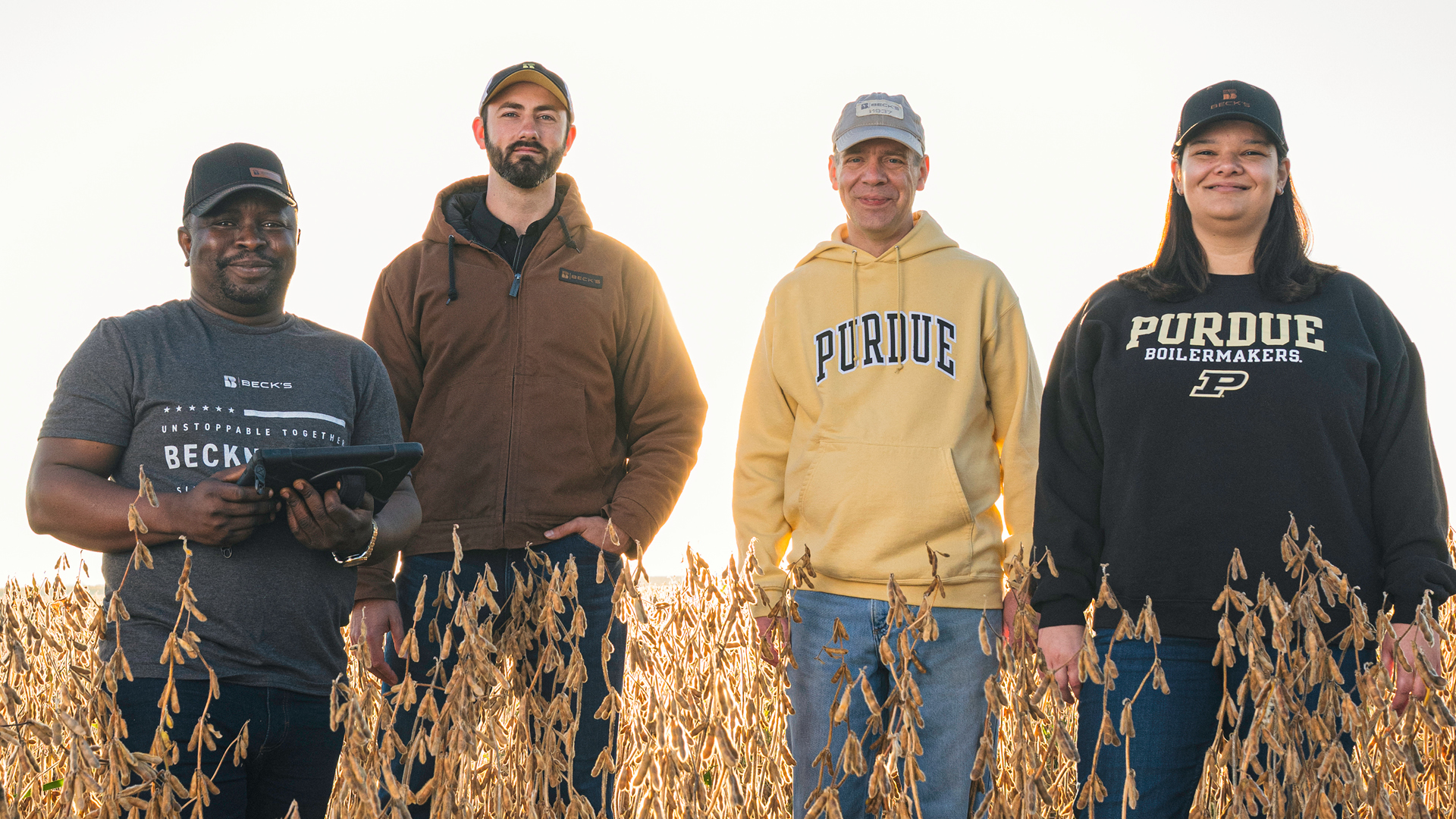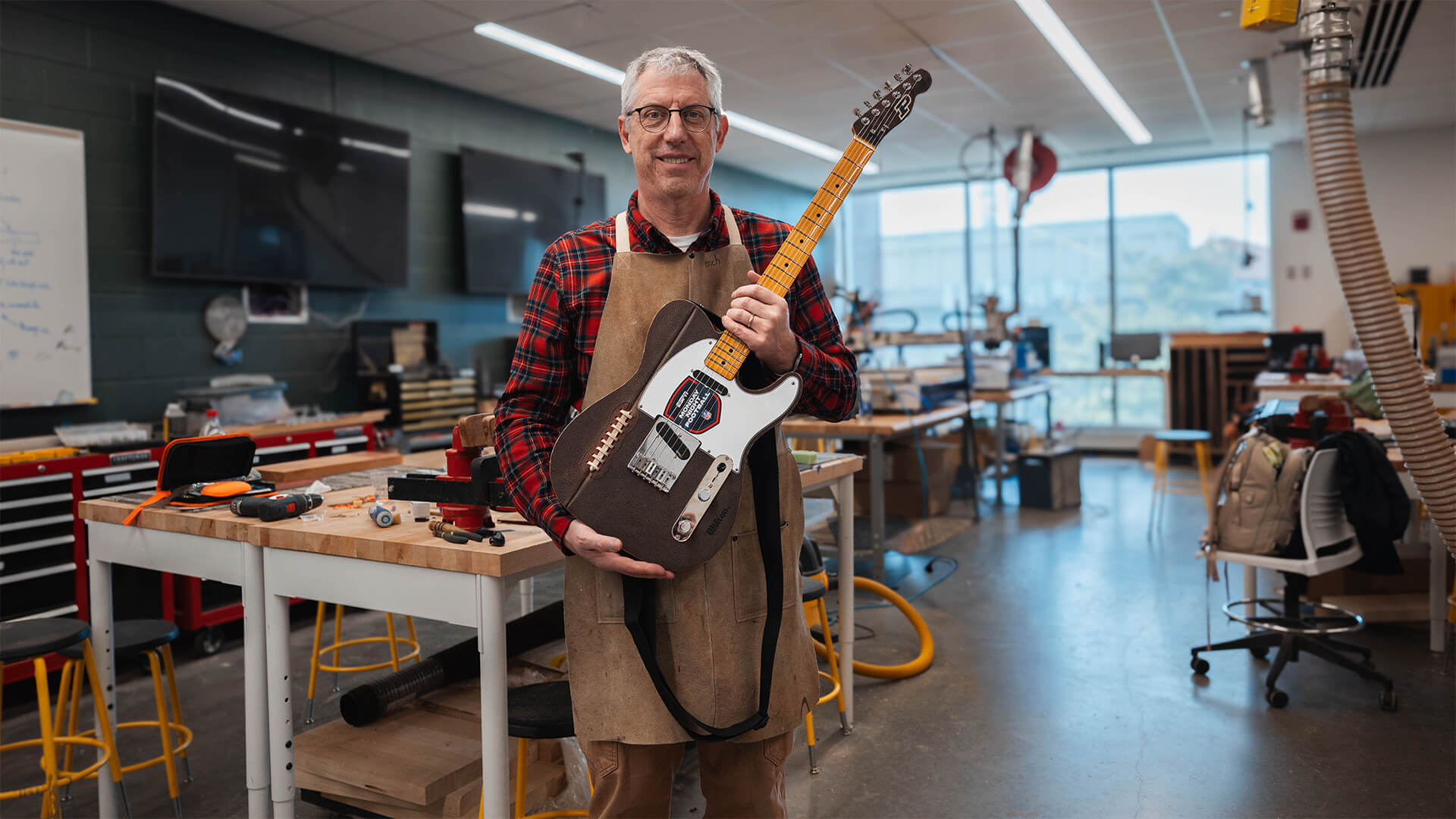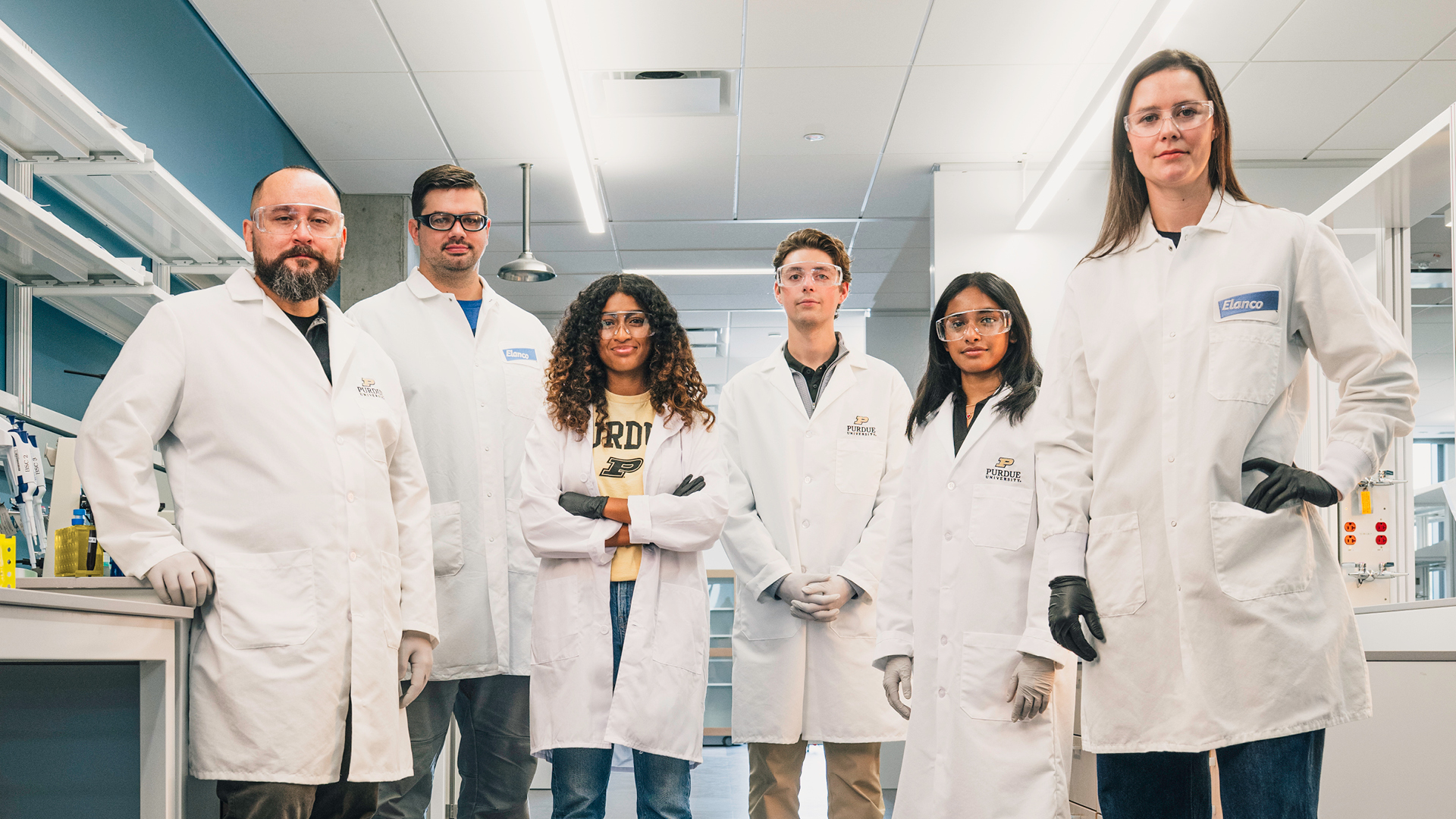Reaching rural residents with colorectal cancer screenings
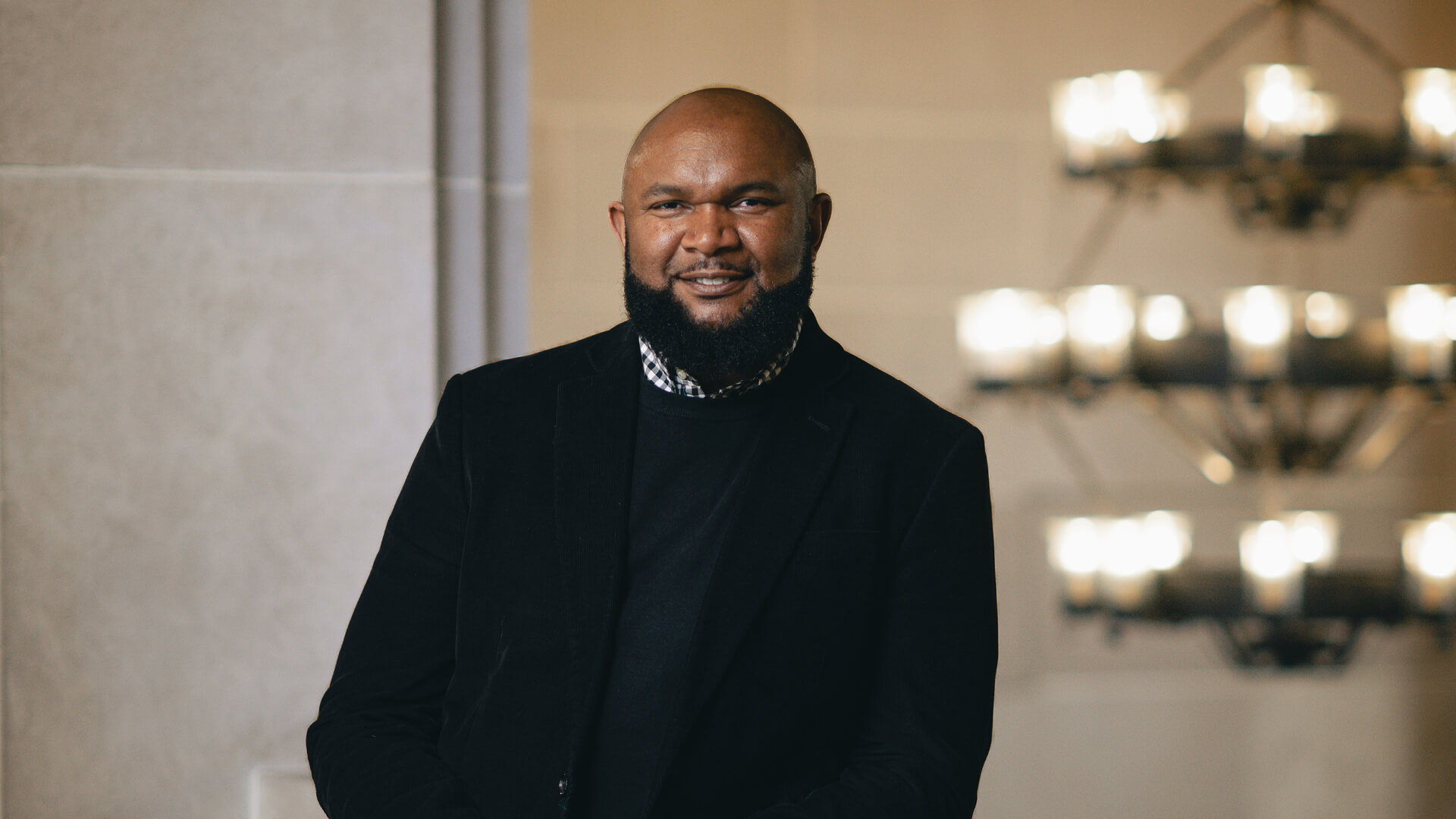
Michael Preston, an assistant professor of pharmacy practice in Purdue University’s College of Pharmacy, is interested in how to develop health initiatives to engage underrepresented, rural and under-resourced communities. (Purdue University photo/Charles Jischke)
Purdue’s Michael Preston develops evidence-based interventions for under-resourced communities
When detected early, colorectal cancer is one of the most preventable and treatable forms of cancer. Yet a third of at-risk adults have not taken steps to ensure their cancer is caught before it can advance, according to the Colorectal Cancer Alliance.
Michael Preston, an assistant professor of pharmacy practice in Purdue University’s College of Pharmacy, seeks to understand the barriers that prevent individuals from seeking evidence-based interventions such as cancer screenings. He develops health initiatives that provide road maps for engaging communities that tend to be underrepresented, rural and under-resourced.
Meeting people from underserved communities, learning what their needs are and figuring out how we build more trust within those communities motivates me to continue my work.
Michael Preston
Clinical assistant professor of pharmacy practice
“Through my work conducting outreach and engagement activities in underserved communities, I’ve encountered a lot of people who may not know how to navigate the health care system,” Preston says. “Meeting people from underserved communities, learning what their needs are and figuring out how we build more trust within those communities motivates me to continue my work.”
Preston grew up in a farming community in rural Arkansas, where he noticed friends and family members died prematurely, in their 50s and 60s. It was his first exposure to differences in health outcomes that stem from broader inequities, and that inspired him to pursue a career in public health and health services research. Since arriving at Purdue, he launched the Reaching the Underserved, Rural and Low-Income (RURaL) Lab for Dissemination and Implementation Research in Cancer Disparities to facilitate his research activities.
“Health disparities were very prevalent in the area where I grew up,” Preston says. “I wanted to make an impact in those communities by first understanding why the disparities exist and then developing targeted programs that help alleviate those disparities.”
Preston hopes to partner with Purdue Extension to implement screening and outreach programs across the state. He also plans to collaborate with the Center for Health Equity and Innovation (CHEqI) in the College of Pharmacy, which advocates for collaborative community- and person-centered approaches to address the needs of populations that are historically underserved.
“Providing access to health care is not always enough,” Preston says. “Providing people with the resources that best meet their needs, along with provider and patient education, are critical components to cancer prevention. It’s also important to provide enough information so that people can be their own advocates — so that they know when they are due for screenings based on age, family history or other risk factors.”
The programs Preston develops are two-tier, targeting both communities and health providers. In some cases, the local pharmacist may be the only health care practitioner in the area, and finding ways to provide wraparound services — such as the Flu-FIT program, which provides an at-home fecal immunochemical test (FIT) to eligible patients who come in for their flu shot – can benefit the community enormously. “Partnering with community health workers is a tremendous resource in community outreach and engagement work,” Preston says. “Through Extension, Purdue is connected throughout the state of Indiana. That’s one of the things that drew me to West Lafayette. Additionally, the Purdue Institute for Cancer Research and its translational group is doing groundbreaking work in basic cancer research. Coming to Purdue was a great opportunity for me to make an impact throughout the state by working alongside the premier leaders in the fields of cancer research and public health.”
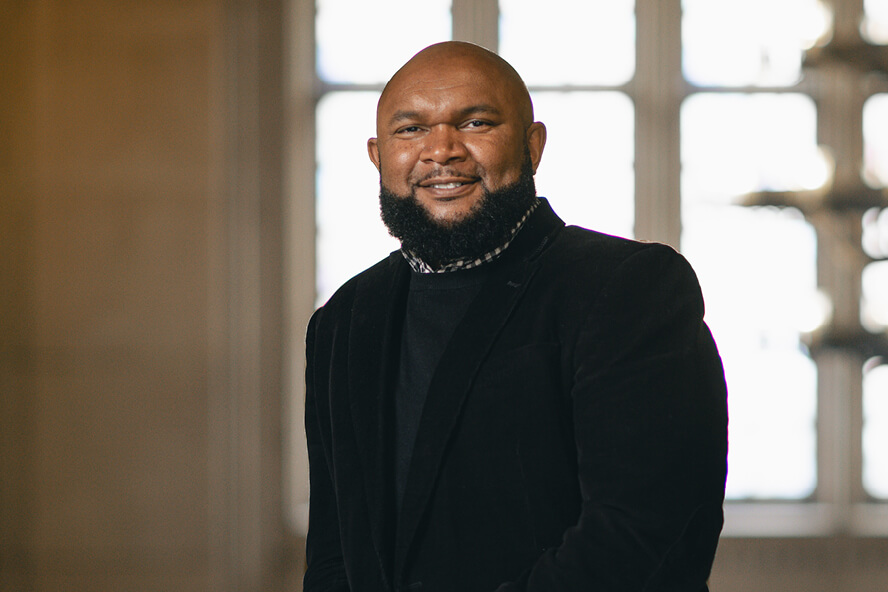
Coming to Purdue was a great opportunity for me to make an impact throughout the state by working alongside the premier leaders in the fields of cancer research and public health.
Michael Preston Clinical assistant professor of pharmacy practice

